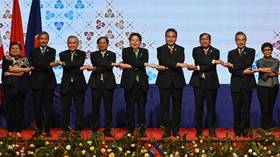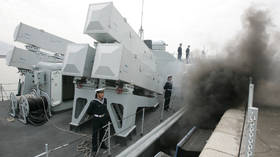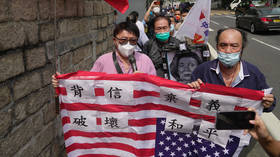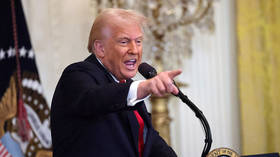China scraps high-level meeting with Japan

Beijing has canceled an upcoming meeting between the Chinese and Japanese foreign ministers, over a statement on Taiwan made by the G7 group, the Chinese foreign ministry announced on Thursday.
The talks between Chinese Foreign Minister Wang Yi and his Japanese counterpart Yoshimasa Hayashi, which were planned to be held on the sidelines of the ongoing ASEAN events in Cambodia, won’t be taking place, the ministry’s spokeswoman Hua Chunying said during a briefing.
According to Ha, Beijing has been “strongly displeased” by the joint statement of the G7 group, which includes Japan, Canada, France, Germany, Italy, the UK and the US, on the events around the visit of US House speaker Nancy Pelosi to the self-governed island of Taiwan.
Tokyo has no right to make “irresponsible remarks” on the Taiwan issue, the spokeswoman insisted.
In their statement on Wednesday, the foreign ministers of the G7 nations denounced China for launching a series of military exercises and live-fire drills in six maritime areas around the island in response to Pelosi’s trip.
“There is no justification to use a visit as pretext for aggressive military activity in the Taiwan Strait,” the statement read, adding that Beijing’s “escalatory response risks increasing tensions and destabilizing the region.”
The G7 defended the actions of the US House speaker by insisting that it is “normal and routine” for lawmakers from Western nations to travel internationally.
“We call on the PRC (People’s Republic of China) not to unilaterally change the status quo by force in the region, and to resolve cross-Strait differences by peaceful means,” the ministers said.
Pelosi, who is third in line to the US presidency, landed in Taipei late on Tuesday and left the next day, becoming the highest-ranking American official to come to the island since 1997.
She made the trip despite vigorous protests in the days prior to it from Beijing, which views Taiwan a part of its territory under its One China policy.
The Chinese authorities responded to the visit, which they deemed “dangerous and provocative,” by announcing large-scale drills and slapping trade restrictions on Taipei.
The Chinese foreign ministry has also warned that the move by the House speaker will have a “severe impact on the political foundation of China-US relations.”
Taiwan, which officially calls itself the Republic of China (ROC), has been self-governed since 1949, but never officially declared independence from Beijing.
Despite agreeing with the One China policy on paper, Washington maintains strong unofficial ties with Taipei, selling weapons to the island of 23.5 million people, and backing its push for sovereignty, much to the displeasure of Beijing.















